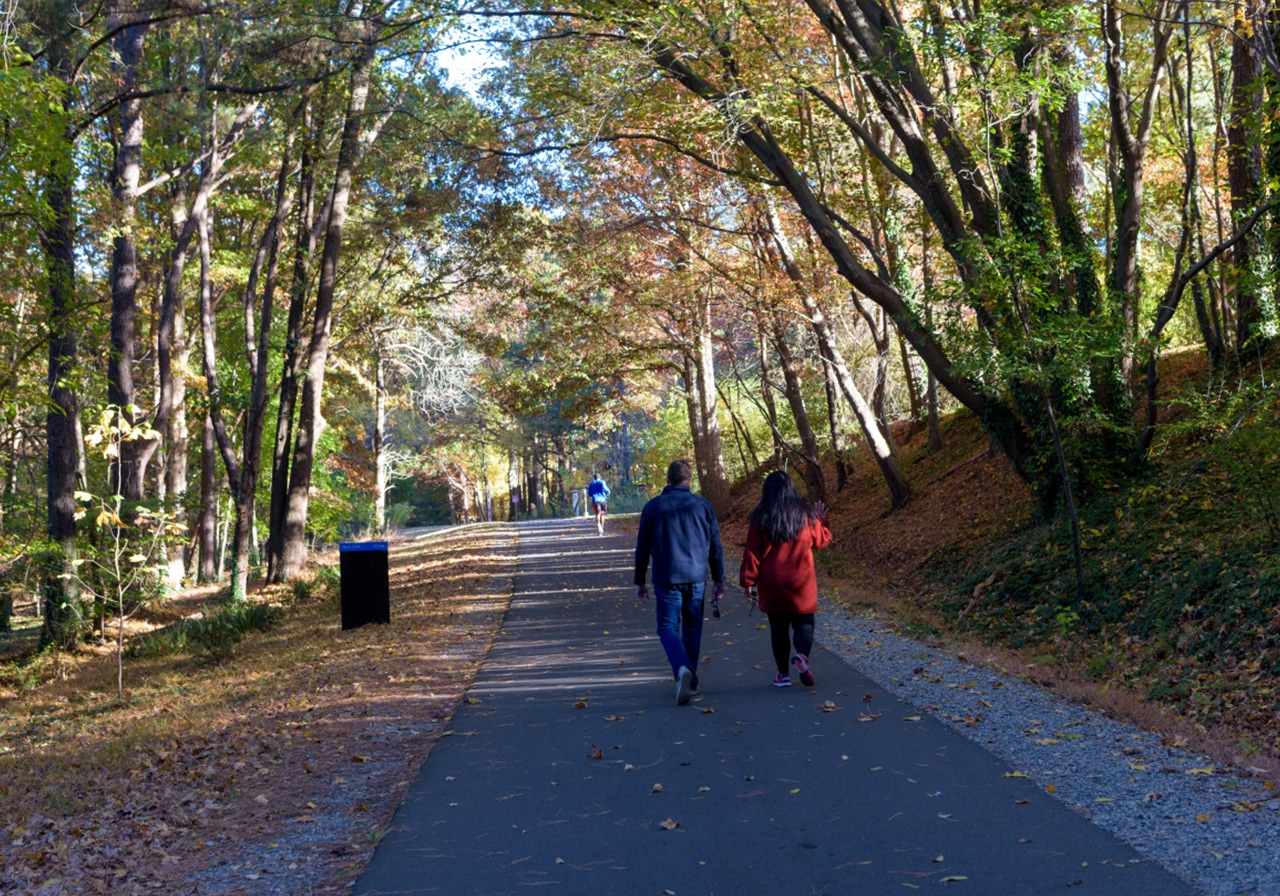Stewardship: A Park for Our Children’s Children
[[translate(episode,'title')]]
[[translate(episode,'audioCredit') || translate(episode,'credit')]][[translate(episode,'title')]]
[[translate(episode,'audioCredit') || translate(episode,'credit')]]Audio Transcript
Part of creating an immersive and peaceful experience for Museum Park visitors includes ensuring it lasts for generations to come.
Responsible and careful management of the Museum Park is known as stewardship.
From preserving art pieces to recording the history of the land to creating ecosystems that preserve the area’s natural wonders, stewardship efforts are always happening at the North Carolina Museum of Art.
One way the Museum does this is by identifying and preserving trees that have survived in the Park for years. These are called legacy trees. Some of the large oak trees in the Museum Park are estimated to be over 200 years old.
The Museum also plants trees that will have long lives, like oak trees, longleaf pines, pecan, and hickory trees. They’re strategically planted in locations where they will have the space to grow to their full sizes and become legacy trees in the future.
Stewardship of the Park is a long-term commitment that requires proper planning.
Planting the right plants in the right place is crucial for the sustainability of the Park. Some plants prefer the sun, while others thrive in the shade. Some grow best in naturally wet areas and others in naturally dry. Knowing the conditions of every area on campus helps the Museum plan rich and varied landscapes.
Historical land use, such as poor agricultural practices, disrupted the natural ecological function and caused degradation of the natural habitats on-site. Ecological functions are the processes by which habitats naturally heal themselves and create an environment that can support a biodiverse mix of plants and animals. The loss of these ecological functions leads to habitat degradation through the loss of fundamental environmental components such as soil fertility and water quality. This reduces plant productivity and the diversity of the number of species that can utilize the habitat as a home. Loss of these natural ecological processes also makes these habitats vulnerable to external forces such as invasive species, severe storms, and erosion. Erosion further degrades habitat quality and its ability to sustain a mix of biodiverse species.
To improve soil quality, the Museum utilizes plant species such as legumes, which have the unique ability to fix nitrogen. Legumes, such as partridge peas, form a symbiotic relationship with bacteria in the soil that allows them to add nitrogen to the soil to make it healthier.
The Museum also plants native meadow grasses with deep root systems to help prevent erosion. Erosion is what happens when the land is worn away by water or wind. These plants, with their deep roots, hold the earth in place and build back healthy soil.
Conserving the Park takes a lot of work, but there are things visitors can do to help. As a Park visitor, you can be a steward by remembering to take out everything you bring into the Park. Trash left in the Park ends up in the landscape and can be harmful to wildlife. And while we all love seeing wildlife on Museum visits, being a steward of the Park means staying on walking paths and not disturbing the Park’s natural residents.
A large focus of Park stewardship is controlling invasive plant species in the Park. Invasive plant species such as Callery pear and privet spread from areas where they are planted elsewhere in the Triangle and become established in natural areas such as the Museum Park. Avoiding the use of invasive plant species and utilizing native plants such as Allegheny serviceberry and Mount Airy fothergilla in your home garden helps reduce the spread of undesirable plants and supports native wildlife.
Stewardship of the Museum Park is important for the health of our planet. Together, we can preserve the Museum Park for our children’s children.
